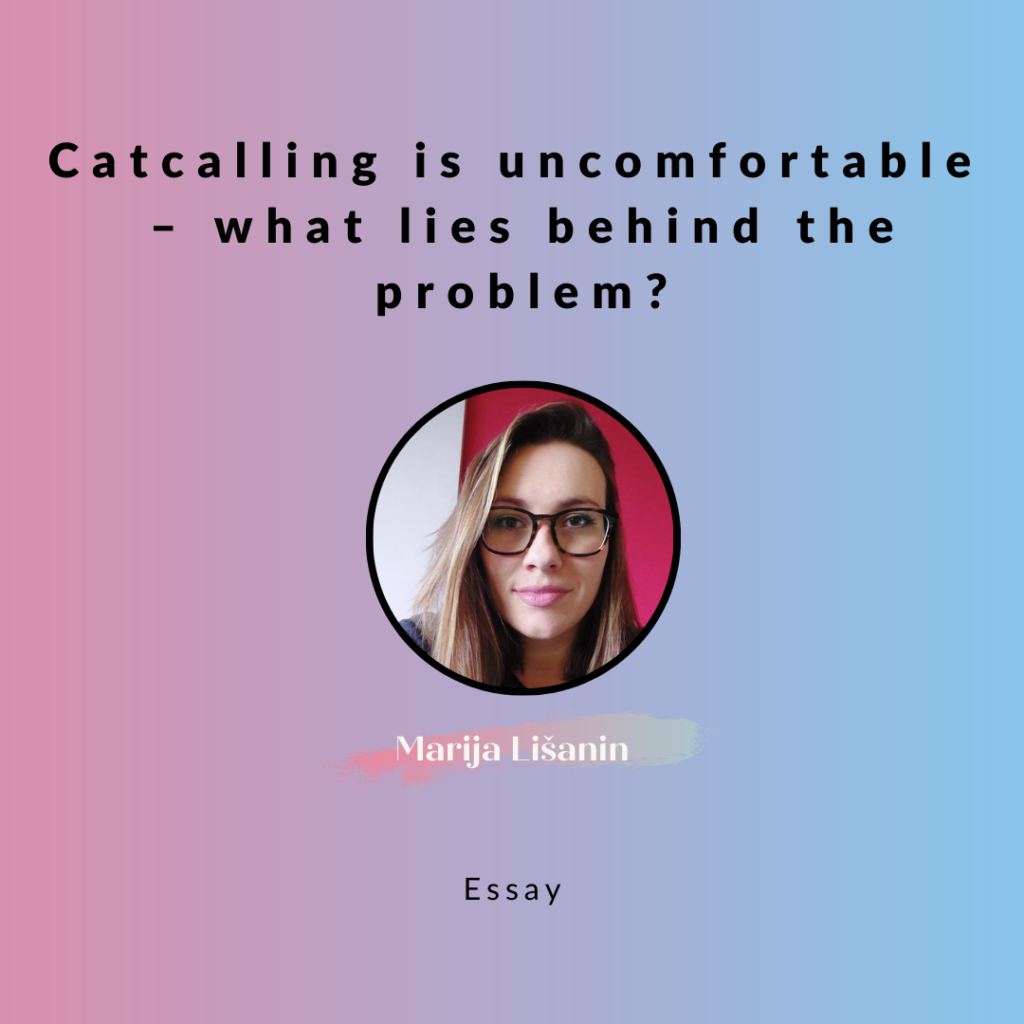
When I was 14 years old, I asked myself, who am I and my body? What makes me feminine? Who has a right to point a finger and evaluate me?
I was active in sports. I trained in volleyball and loved the feeling each new training brought me. I was homo ludens, the one who plays. Because of my shyness, I would often hide my appearance by wearing hoodies. Someone would never see me in a short skirt because my thinking was: why should I attract attention when I will definitely be embarrassed?
One day, on the way home from school, I was walking on the street, it was daytime, and a middle-aged man grabbed my thigh when we were about to pass each other! Just like that!
I was terrified and shocked! How else, like a shy child? I was speechless, pushed his hand, and started to run and run with all my might. As I ran, I tried to forget about that unpleasant event. Since then, I was afraid and closed myself off. Later, I would avoid all potential risky situations, parts of the city, places, and events. I was careful, I tried to be less visible.
I never told anyone about it. I was already very introverted and sensitive. Now I want to share my experience, and let’s talk about street catcalling!
Later, when I was an adult young woman, catcalling happened to me, occasionally while walking or waiting for someone on the street. Even today, I am always shocked, and unconsciously speed up my pace because I want the feeling of invisibility. I always feel uncomfortable. Catcalling is not a compliment!
What is catcalling?
Catcalling is a type of street harassment, usually using derogatory terms, provocative gestures, whistling, honking car horns at passing women, flashing vulgar gestures, self-exposure to a woman, and even inappropriate grabbing.
Catcalling aims to humiliate and dominate another person, often involving a group of men and one woman, unlike flirting which usually occurs one-on-one and assumes reciprocity and equality, and aims to develop a relationship. Men who fling usually do so in the company of other men, and the comments are generally objectifying and dehumanizing, at the expense of the woman’s physical appearance.
Do we need to criminalize catcalling?
In research papers, women conceptualized catcalling as a primarily negative experience as they associated it with negative emotions and affective states. Thematic analysis of the interviews with women who have experiences and perceptions of catcalling showed that catcalling is complex.
Another research paper titled Motivations behind catcalling: exploring men’s engagement in street harassment behaviour explores men’s engagement in street harassment behavior and reports that the most frequent motivations for catcalling were to express sexual interest in the target. The paper also reports that men who reported having engaged in catcalling demonstrated higher levels of hostile sexism, self-ascribed masculinity, social dominance orientation, and tolerance of sexual harassment.
It’s not attractive, and not funny to objectify someone. While compliments are considered personalized and harmless, on the other hand, whistling and sexual comments can make a person feel afraid for their safety. Everyone should take responsibility for their actions, words, and behavior so there will be zero tolerance for violence and harassment on the street.
by Marija Lišanin
Resources
Catcalling. Not a joke, not a compliment: it’s harassment | ActionAid UK



